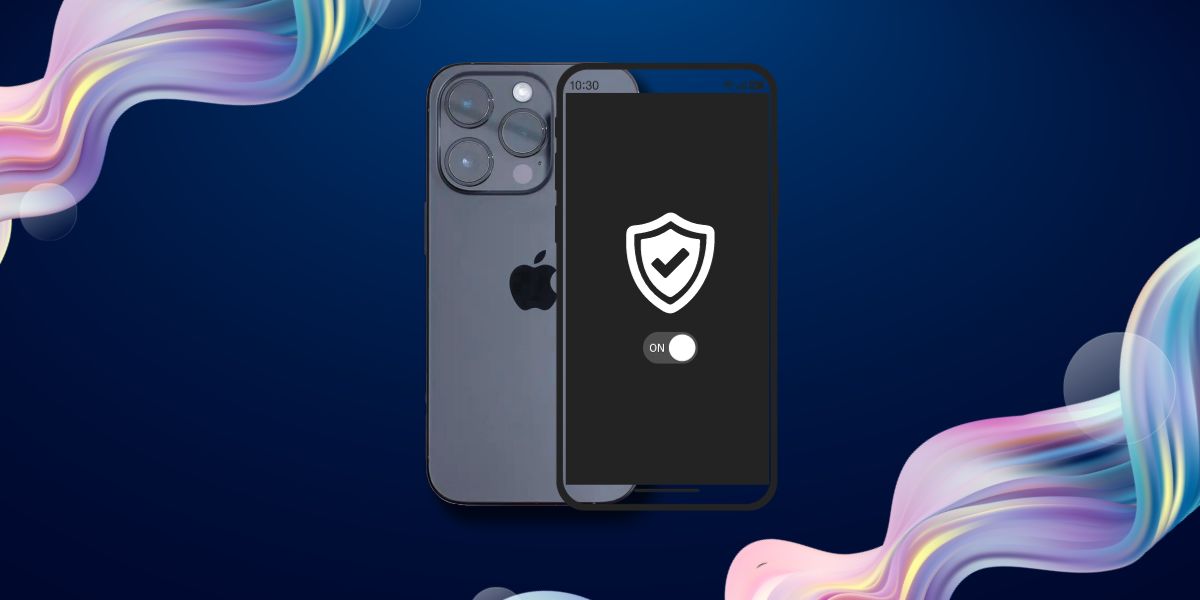Do we need to set up antivirus on iPhone? While iPhones are known for their robust security, it’s still important to take steps to protect your device and data. This guide will walk you through essential security measures to enhance the safety of your iPhone.
Why Enhance iPhone Security?
Data Protection: Protect your personal information, photos, and messages from unauthorized access.
Privacy: Safeguard your online privacy and prevent unwanted tracking.
App Security: Ensure the apps you download are safe and legitimate.
It’s important to note that iOS (the operating system used on iPhones and iPads) is designed with a high level of security, and Apple’s App Store is strict about app vetting. As a result, traditional antivirus software is not typically needed on iPhones. Nevertheless, you can take steps to ensure your iPhone remains secure. Here’s a guide on how to enhance security on your iPhone:
Thus we are providing you the steps that can enhance your iPhone’s security.
Security Measures
1. Keep iOS Updated:
Ensure your iPhone is running the latest version of iOS. Apple regularly releases updates with security enhancements.
- Go to “Settings.”
- Scroll down and tap “General.”
- Tap “Software Update” to check for and install updates.
2. Enable Face ID or Touch ID:
Use biometric authentication (Face ID or Touch ID) to lock your device for added security.
- Go to “Settings.”
- Scroll down and tap “Face ID & Passcode” or “Touch ID & Passcode.”
- Follow the on-screen instructions to set up Face ID or Touch ID.
3. Use a Strong Passcode:
Set a strong, unique passcode to unlock your iPhone.
- Go to “Settings.”
- Scroll down and tap “Face ID & Passcode” or “Touch ID & Passcode.”
- Enter your current passcode if prompted.
- Tap “Change Passcode” and follow the prompts to create a new passcode.
4. Enable Two-Factor Authentication (2FA):
Add an extra layer of security to your Apple ID by enabling 2FA.
- Go to “Settings.”
- Tap your name at the top.
- Tap “Password & Security.”
- Tap “Turn On Two-Factor Authentication” and follow the prompts.
5. Install Apps from the App Store:
Only download apps from the official App Store, as Apple thoroughly vets them for security.
6. Review App Permissions:
Periodically review and manage the permissions granted to your apps.
- Go to “Settings.”
- Scroll down and select an app.
- Tap “Privacy” to see and adjust permissions.
7. Regularly Back Up Your iPhone:
Ensure your data is safe by regularly backing up your device to iCloud or your computer.
- Go to “Settings.”
- Tap your name at the top.
- Tap “iCloud” and then “iCloud Backup.”
8. Be Cautious with Links and Emails:
Avoid clicking on suspicious links in emails and messages, and be cautious when sharing personal information.
9. Use Safari Content Blockers:
Enable content blockers in Safari to prevent ads and tracking.
- Go to “Settings.”
- Scroll down and tap “Safari.”
- Tap “Content Blockers” to manage them.
10. Enable Find My iPhone:
Activate this feature to track and remotely lock or erase your iPhone if it’s lost or stolen.
- Go to “Settings.”
- Tap your name at the top.
- Tap “Find My.”
- Turn on “Find My iPhone.”
11. Install Find My iPhone App (Optional):
You can install the Find My iPhone app for added convenience in locating your device.
- Download it from the App Store.
12. Educate Yourself:
Stay informed about potential security threats and best practices to protect your iPhone.
Conclusion
While iPhones are known for their strong security features, it’s still essential to take steps to protect your device and data. By following the security measures outlined in this guide, you can enhance the safety of your iPhone and enjoy a more secure mobile experience. Remember that staying informed about security best practices and being cautious with your actions and the apps you use are essential for keeping your iPhone secure.
Frequently Asked Questions (FAQs)
Q1: Is antivirus software necessary for my iPhone?
A1: In most cases, antivirus software is not necessary for iPhones. Apple’s iOS has built-in security features, and the App Store’s strict vetting process helps ensure app safety. However, it’s still important to follow best security practices.
Q2: What should I do if I forget my iPhone passcode?
A2: If you forget your iPhone passcode, you’ll need to follow Apple’s official procedures to regain access. This often involves connecting your device to a computer and using iTunes or Finder to restore it.
Q3: How does Two-Factor Authentication (2FA) enhance security on my iPhone?
A3: 2FA adds an extra layer of security by requiring you to enter a verification code sent to your trusted device or phone number when signing in. This makes it much harder for unauthorized users to access your accounts.
Q4: Can I use Face ID or Touch ID with third-party apps?
A4: Yes, many third-party apps support Face ID and Touch ID for authentication. You can enable this in the settings of individual apps if the feature is available.
Q5: How can I protect my iPhone from phishing attacks?
A5: Be cautious with emails and messages from unknown sources. Avoid clicking on suspicious links, and do not share personal information unless you are certain about the sender’s authenticity.
Q6: Should I install a VPN on my iPhone for added security?
A6: A VPN (Virtual Private Network) can enhance privacy when browsing the internet, especially on public Wi-Fi networks. While it’s not strictly necessary, it can be a valuable security tool.
Q7: What should I do if my iPhone is lost or stolen?
A7: If your iPhone is lost or stolen, use the Find My iPhone feature to track its location, lock it remotely, or erase its data. You can also contact your wireless carrier to report the loss.
